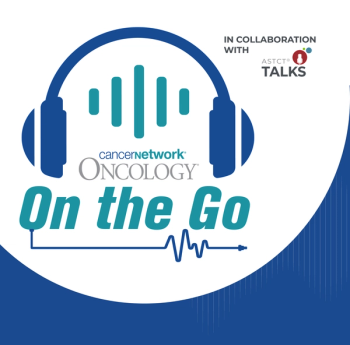
Rahul Banerjee, MD, FACP; and Brooke Adams, PharmD, BCOP, discussed the top hematologic oncology abstracts from the 2025 ASH Annual Meeting and Exposition.

Your AI-Trained Oncology Knowledge Connection!


Rahul Banerjee, MD, FACP; and Brooke Adams, PharmD, BCOP, discussed the top hematologic oncology abstracts from the 2025 ASH Annual Meeting and Exposition.
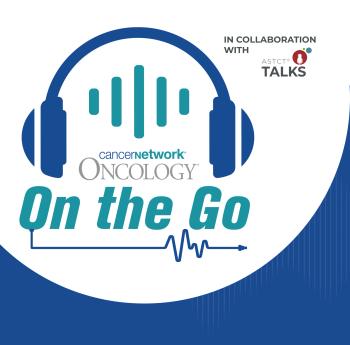
An expert panel highlights key presentations in multiple myeloma, lymphoma, and other hematologic malignancies at the 2025 ASCO Annual Meeting.

Shernan Holtan, MD, and Rahul Banerjee, MD, FACP, discussed various trials of significance shared as posters and presentations at the 2025 Tandem Meeting.
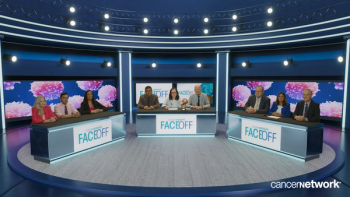
Panelists discuss how the use of CAR T-cell therapy in earlier lines of treatment for relapsed/refractory multiple myeloma could potentially improve long-term outcomes, considering factors such as patient selection, optimal timing, and the impact on subsequent treatment options.

Panelists discuss how to select appropriate bispecific antibody therapies for patients with relapsed/refractory multiple myeloma who have failed BCMA-targeted treatments, considering factors such as alternative targets, mechanisms of resistance, and emerging clinical data to provide effective subsequent treatment options.

Panelists discuss how to optimize the sequencing of bispecific antibodies and CAR T-cell therapies in relapsed/refractory multiple myeloma, considering factors such as patient characteristics, disease burden, and the unique advantages of each approach to maximize treatment efficacy and patient outcomes.

Panelists discuss how to tailor treatment strategies for a 67-year-old, BCMA-naïve woman with relapsed/refractory multiple myeloma, weighing the potential benefits of BCMA-targeted therapies against other available options in the context of her specific clinical presentation.

Panelists discuss how to approach treatment decisions for a 68-year-old woman with triple-class exposed relapsed/refractory multiple myeloma, considering factors such as prior therapies, disease characteristics, and emerging treatment options to optimize her care.

Panelists discuss how the CARTITUDE-4 trial results show cilta-cel's superior efficacy over standard of care therapies in treating relapsed/refractory multiple myeloma, potentially reshaping treatment paradigms for this patient population.

Panelists discuss how the KarMMa-3 trial results demonstrate superior efficacy of ide-cel compared to standard of care therapies in patients with relapsed/refractory multiple myeloma, potentially establishing a new benchmark for treatment in this setting.

Panelists discuss how ide-cel, a CAR T-cell therapy, demonstrates promising real-world outcomes in patients with relapsed/refractory multiple myeloma, potentially offering a valuable treatment option for this challenging patient population.

Panelists discuss how novel therapeutic approaches and combination regimens are reshaping the landscape of treatment for patients with relapsed/refractory multiple myeloma, offering new hope for improved outcomes and quality of life.

Experts in multiple myeloma weigh the benefits and risks of administering CAR T-cell therapy to patients based on prior reports of secondary malignancies.
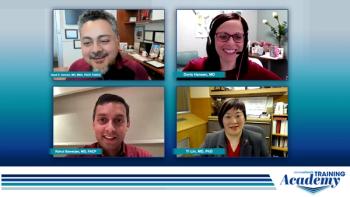
The panel concludes its discussion with key takeaways on the evolving role of CAR T-cell therapy in the treatment of patients with relapsed/refractory multiple myeloma.

Experts on multiple myeloma provide their impressions of the CARTITUDE-4 and KarMMa-3 studies, which led to the approval of cilta-cel and ide-cel in earlier lines of treatment for patients with relapsed/refractory disease.

Myeloma specialists have a comprehensive discussion on CAR T-cell therapy, highlighting treatment selection considerations, adverse event management strategies, unmet needs, and ongoing research.

Focusing on later lines of therapy for patients with relapsed/refractory multiple myeloma, the panel provides key takeaways on the CARTITUDE-1 and KarMMa trials that investigated cilta-cel and ide-cel.

Yi Lin, MD, PhD, provides insights on the impact of CAR T-cell therapy on the evolving multiple myeloma treatment landscape.

Rahul Banerjee, MD, FACP, discusses how the emergence of CAR T-cell therapy has impacted the multiple myeloma treatment landscape by addressing unmet needs and improving patients’ quality of life.

A panel of experts on multiple myeloma discuss the rationale for CAR T-cell therapy, highlighting BCMA as a target and treatment administration practices.
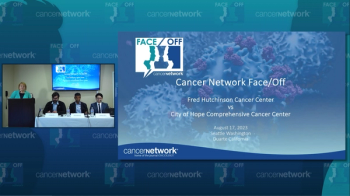
Panelists review the CARTITUDE-4 study results highlighting the efficacy of cilta-cel in lenalidomide-refractory multiple myeloma, addressing implementation challenges and patient preferences in varying relapse scenarios.

Expert insight into the later-line efficacy and tolerability of olverembatinib, a third generation TKI, in ponatinib-resistant, refractory chronic myeloid leukemia populations.

Leading experts discuss the potential benefits and challenges of using ixazomib pomalidomide-dexamethasone as a treatment option for relapsed myeloma patients, considering factors like efficacy, overall survival, and patient demographics.

Considerations for selecting between ponatinib and asciminib as third-line therapies for CML based on factors such as disease burden, mutations, and patient tolerability.

Rahul Banerjee, MD, FACP, discusses the Alliance A061202 trial, presenting the potential benefits and red flags of using ixazomib-pomalidomide-dexamethasone combination in relapsed myeloma treatment.

A review of promising results from the ASCEMBL study, highlighting asciminib's superior efficacy, well-tolerated profile, and potential impact on chronic myeloid leukemia treatment options.

Key insights on real-world applications of the REMIX study, which evaluated real-world effectiveness and tolerability of the ixazomib-based regimen in relapsed/refractory multiple myeloma.

A panel of experts discusses the challenges and considerations surrounding cardiovascular risks associated with ponatinib treatment for chronic myeloid leukemia, emphasizing the need for multidisciplinary collaboration and individualized treatment strategies.

Outcomes of the REMIX study investigating the effectiveness and tolerability of ixa-len-dex in real-world relapsed/refractory myeloma patients, exploring progression-free survival, overall response rate, and safety.

Expert insights into tailoring treatment for biochemical relapse in multiple myeloma patients, considering disease progression and the impact of various therapy lines on treatment decisions.
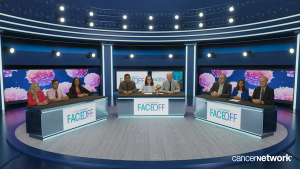
Published: November 25th 2024 | Updated:
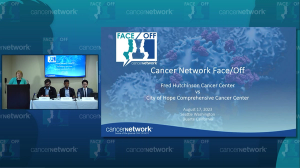
Published: September 26th 2023 | Updated:

Published: September 19th 2023 | Updated:

Published: October 3rd 2023 | Updated:
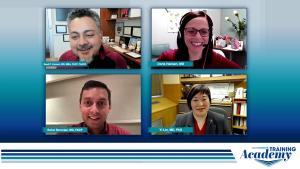
Published: May 31st 2024 | Updated:
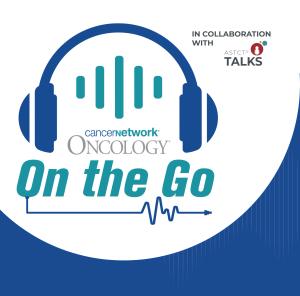
Published: June 9th 2025 | Updated: